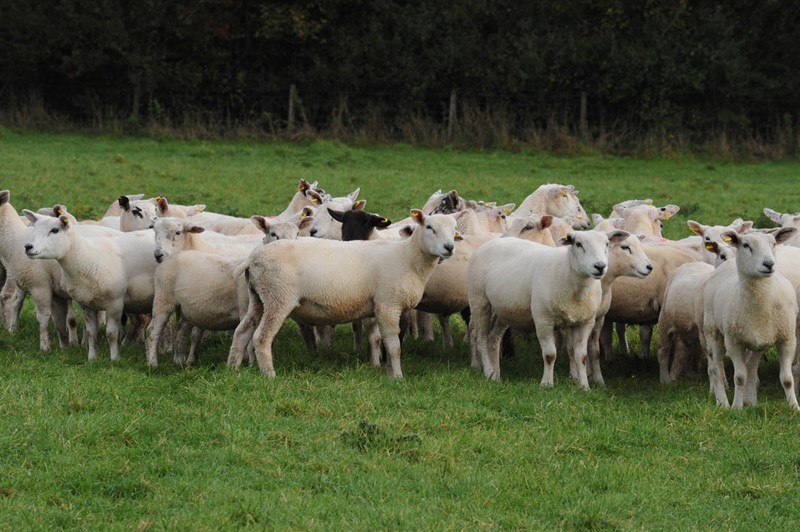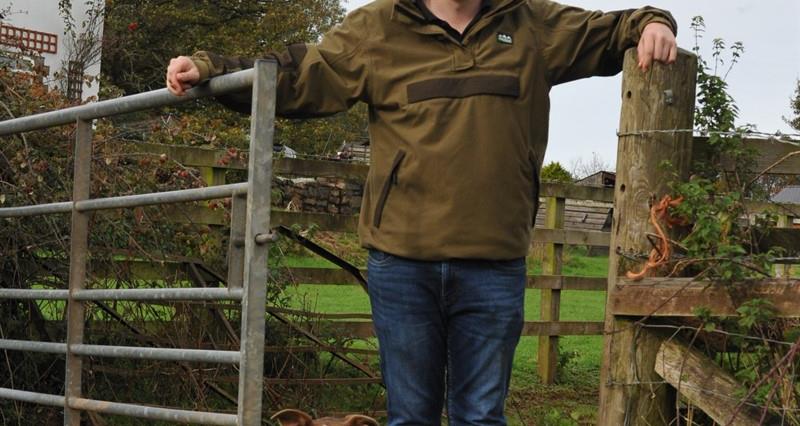Robert David runs a flock of 340 ewes and ewe lambs at Torgelly Farm, a holding that has been farmed by the David family since 1887.
Robert was just 11 when he invested his savings in 15 ewes. Four years later and he launched a direct sales business, by selling lamb to his teachers.
Now aged 22, he has added five pubs and a supermarket chain with eight stores to his list of customers.
Robert studied business and economics at A level and believes everyone would benefit from having some grounding in business and entrepreneurship at school.
Equipping children with entrepreneurial skills at a young age can help develop their appreciation for self-employment opportunities, Robert reckons.
“If young people have the knowledge and confidence to establish a business it is more likely to succeed if they have had exposure to entrepreneurship skills at school,’’ he says.
Robert is the seventh generation of his family to farm Torgelly, which sits on the outskirts of Llanharry in the Vale of Glamorgan.
His grandfather and father, Rhys and Andrew, had been running a flock of 600 ewes and 60 suckler cows until 2001 when foot and mouth disease resulted in the lamb price crashing and their business becoming unviable to support two families.
Andrew left farming to become a gas and oil engineer while Rhys continued with the sheep enterprise until 2008 when he sold the flock to concentrate on creating a business from buying in ewe lambs to run on a low maintenance system.
But Robert was keen to produce his own lamb and in 2009 bought 15 North Country Cheviot and Texel crosses from a neighbour for £60 a head.
“My grandfather encouraged me to buy them because he missed lambing and when I got my own sheep it meant he could keep a few ewes too.’’
Robert also invested in a Texel tup. “I paid £150 for him and used him for five years, he was the best tup I have ever had.’’
When it came to selling his first crop of lambs, he spotted an opportunity to add value.
He started selling to teachers at school and, when a local chef opened a gastro pub, The Hare and Hounds, sourcing local produce, this opened the door to further business.
In 2017, keen to grow that business further, Robert paid a visit to the local store of the independent supermarket chain, Filco, and secured a deal to supply its branches with lamb.
Robert is now finishing 600 lambs a year from 180 acres and all are sold through direct sales under the brand, Torgelly Farm Produce. “By doing this, I have reduced the impact of the fluctuating market,’’ he says.
Lambs are slaughtered at the abattoir in Caerphilly and stored in a cold store owned by a family friend in Merthyr Mawr.
All carcasses are sold whole rather than being butchered. “We have experimented with selling ‘lamb boxes’ and via farmers markets, however we quickly found out that it is time consuming and costly,’’ says Robert.
While running the business, Robert also studied for a BSc Rural Land Management at Cirencester, returning home at weekends to manage the farm.
A small number of the flock lambs in January, to supply lamb for the Easter market, while the bulk lamb in March, usually outdoors
“We sell both new season lamb and hoggets until the first week in May when we change over fully to new season once all the hoggets have been sold,’’ says Robert.

The type of carcass required by retailers and food outlets differ. “The pubs want a heavier lamb and the supermarket a smaller lamb to meet consumer requirements,’’ says Robert.
He has been concentrating on breeding to achieve an animal that suits everyone.
“We used to have a Welsh half-bred type of mule but found the carcass conformation wasn’t what I wanted.
“I have bought Texel and Charollais-cross ewes, hopefully these will improve the conformation on the lambs, along with quicker finishing times and weaning percentage.”
Robert has spent more on better quality tups. “We have bought in tups with more shape, they were more expensive but hopefully it will show in the lambs.’’
Lambs, which are finished on either grass or turnips, achieve a deadweight average of 20kg.
All single-bearing ewes lamb outside and don’t receive any supplementary feed while the twins and triplets are housed when weather conditions deteriorate. Triplets are fed ewe nuts and sugar beet for a month before lambing.
Around 500 big bales of silage are made annually and around 100 of these are fed to ewes with the remainder sold.
“We do our own silage work and because we have the equipment we also help family and friends,’’ says Robert.
Feature first published in Farming Wales May 2020
